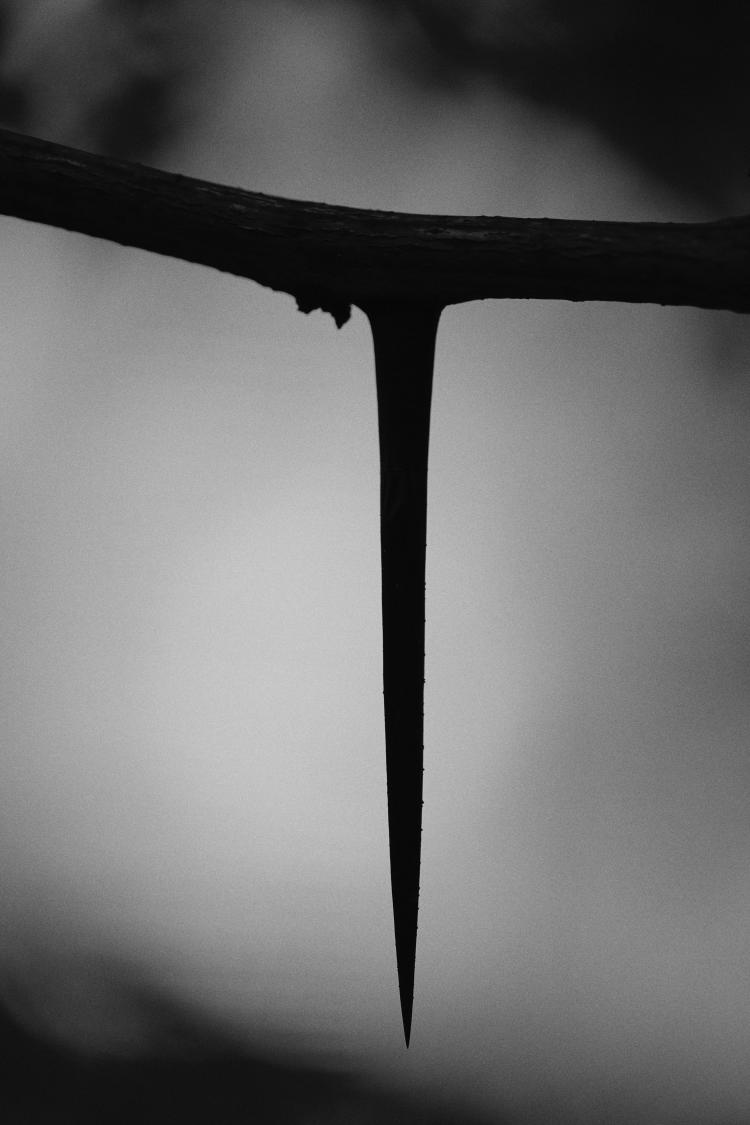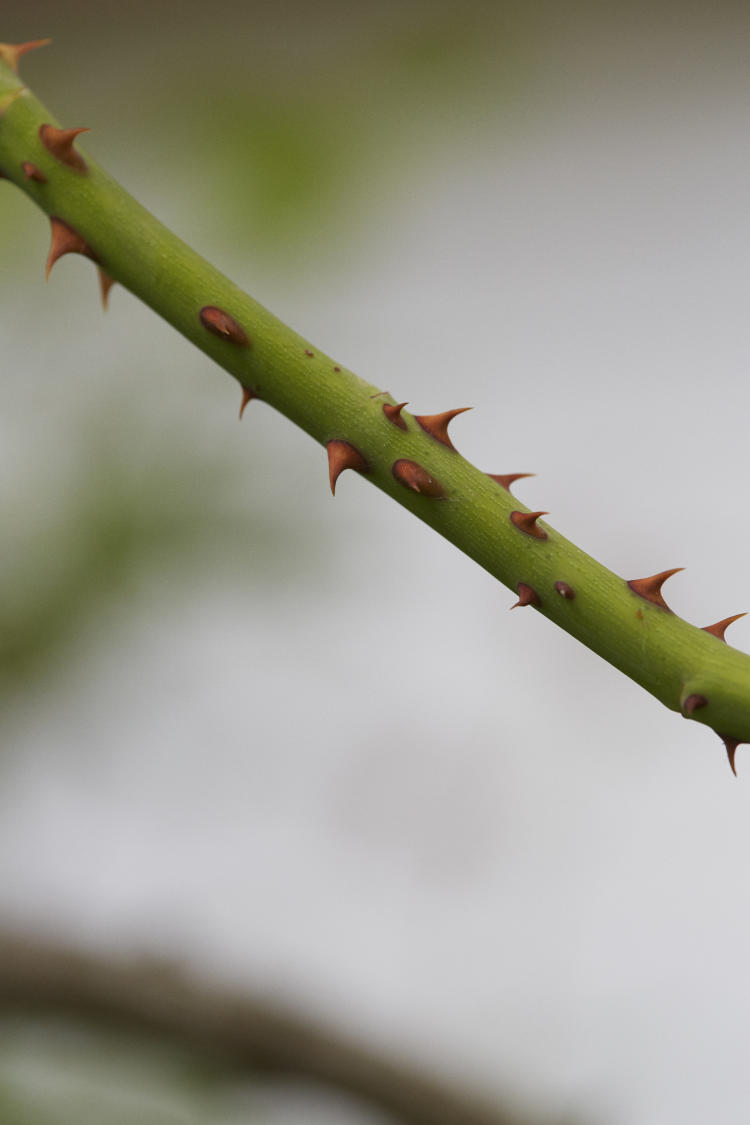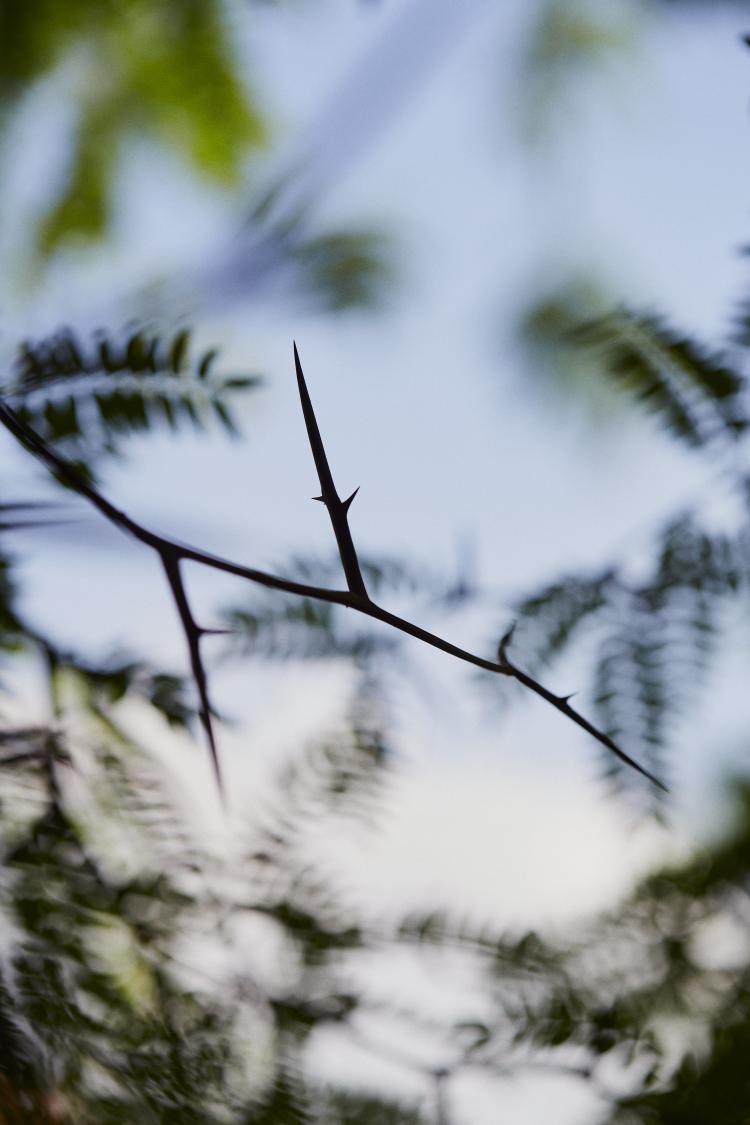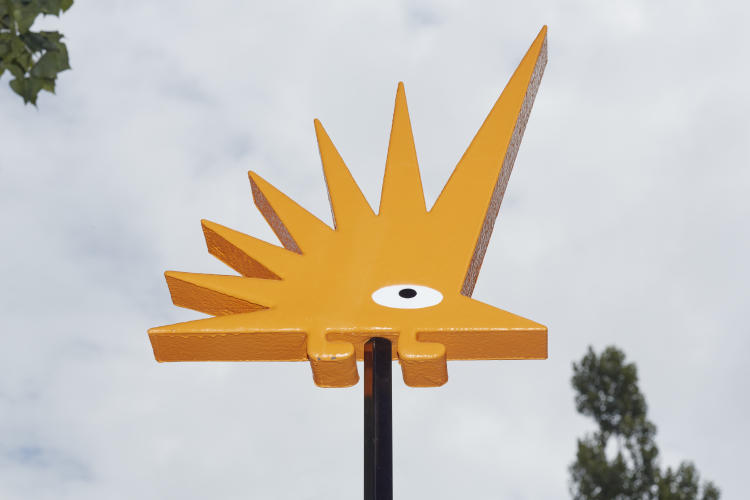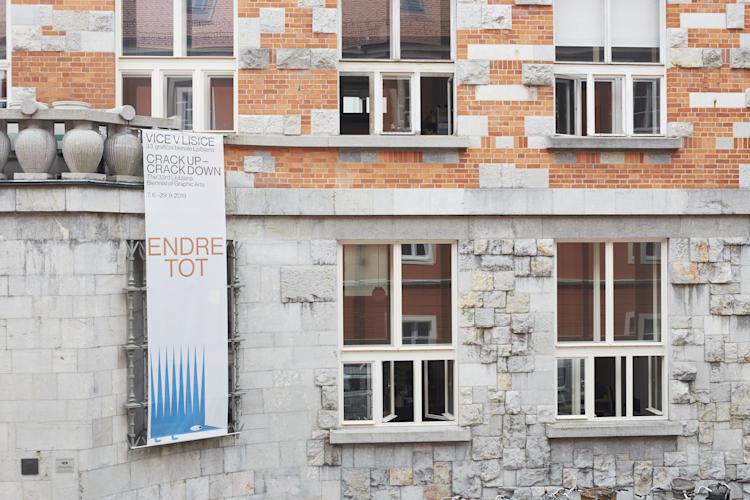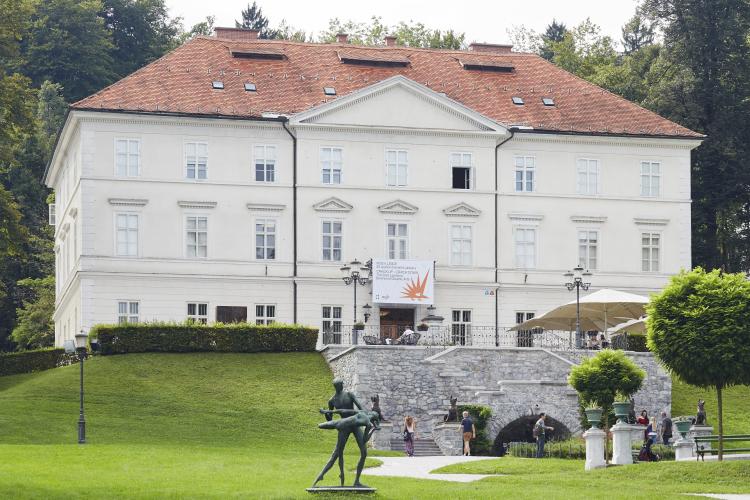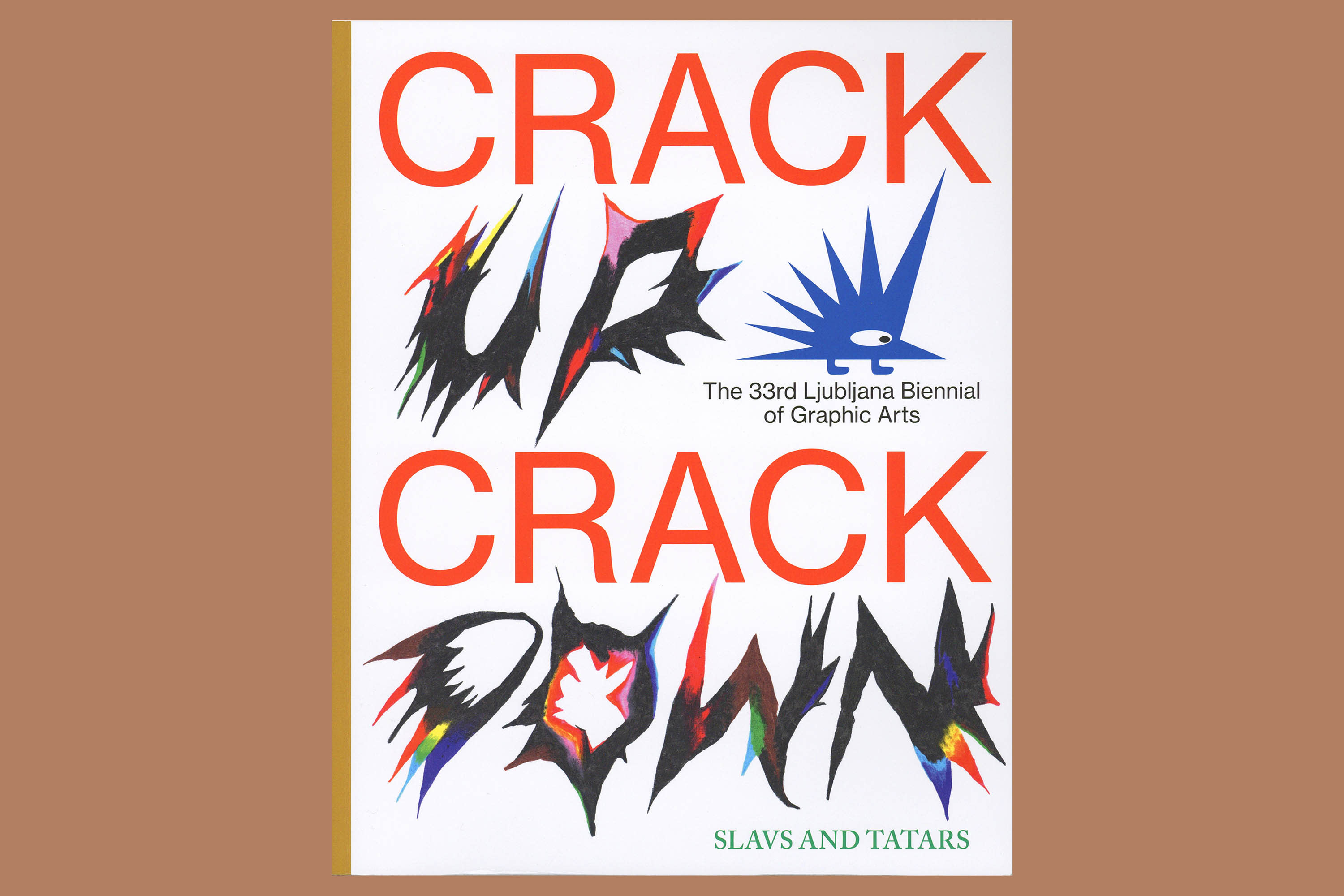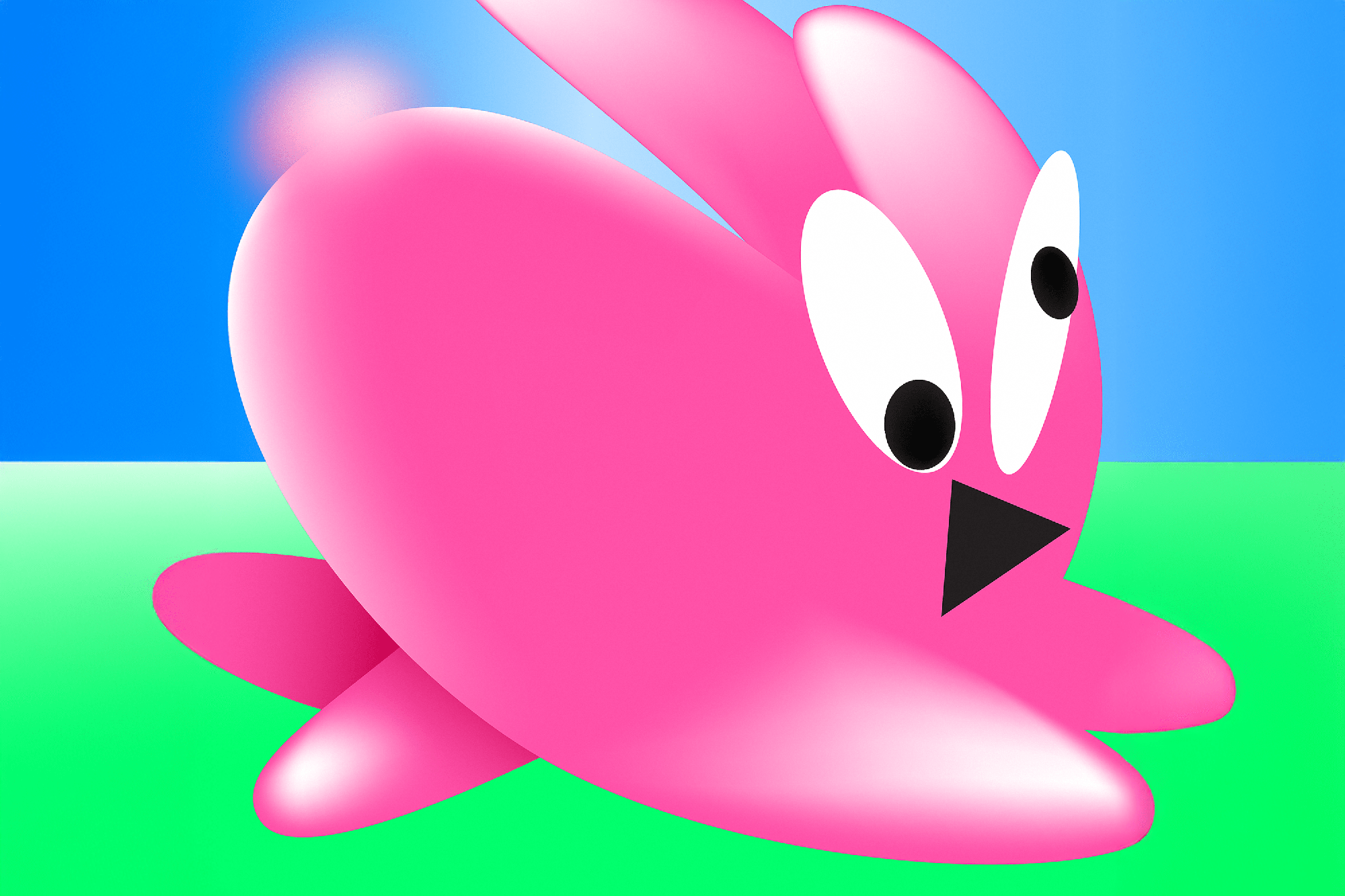33rd Ljubljana Graphic Biennial
Ljubljana’s graphic biennial enjoys a long tradition, and was founded back in 1955, the same year as the first Documenta in Kassel. In the context of the cold-war era, the biennial played an important global role, presenting artists from both sides of the iron curtain, as well as many non-Europeans from the non-aligned movement. Today it is one of the biggest art events in the region and in the last couple of years has moved beyond the boundaries of the printmaking medium. The 33rd edition was curated by the Berlin-based collective Slavs and Tatars.
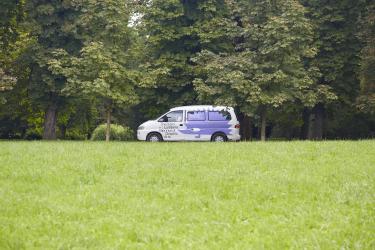
The biennial HQ is located in the middle of Ljubljana’s main park, Tivoli
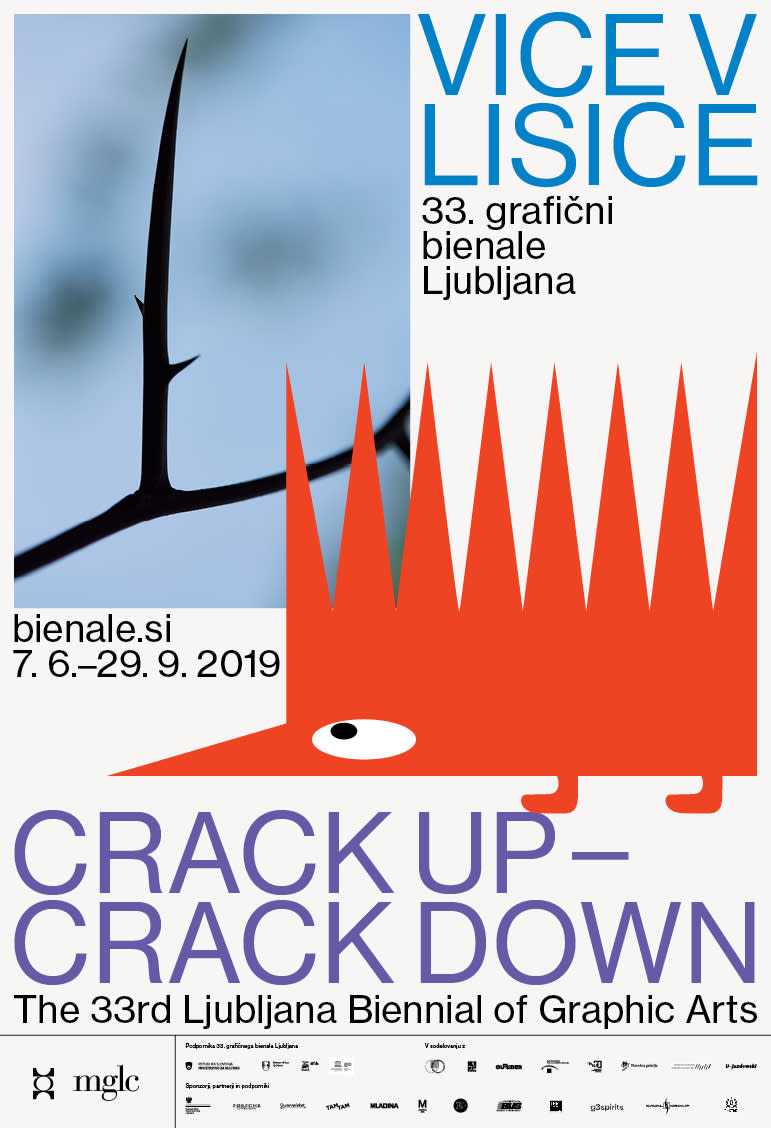
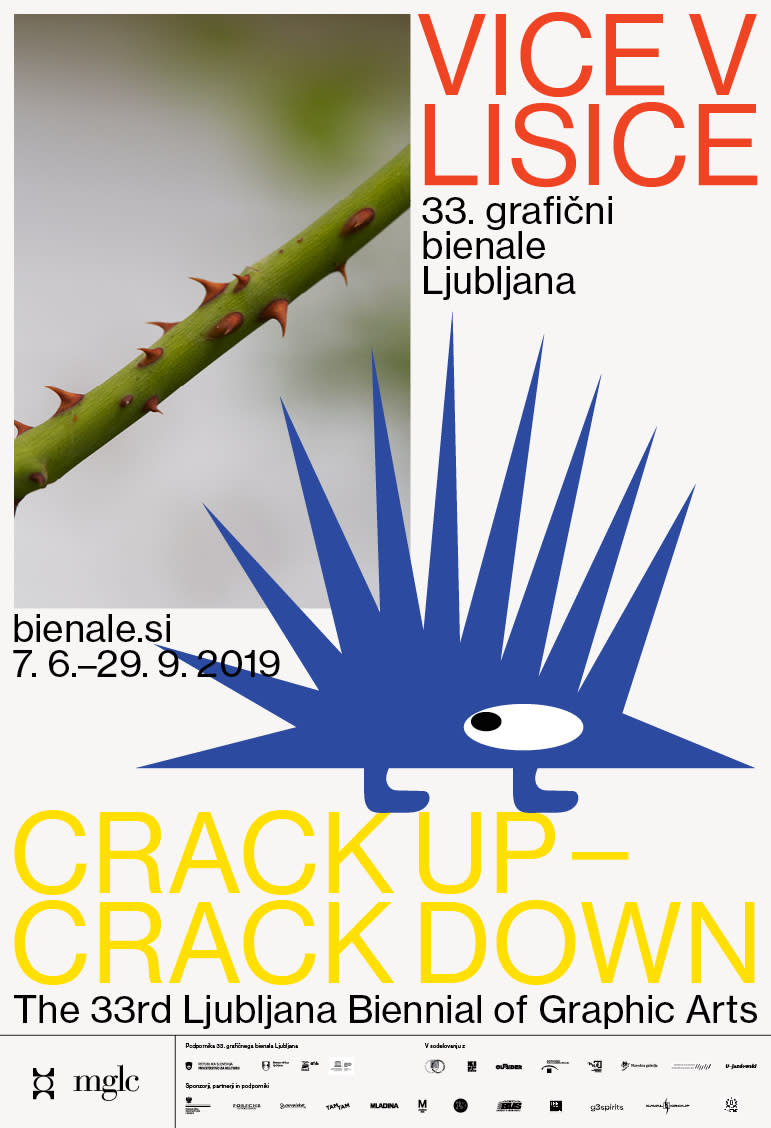
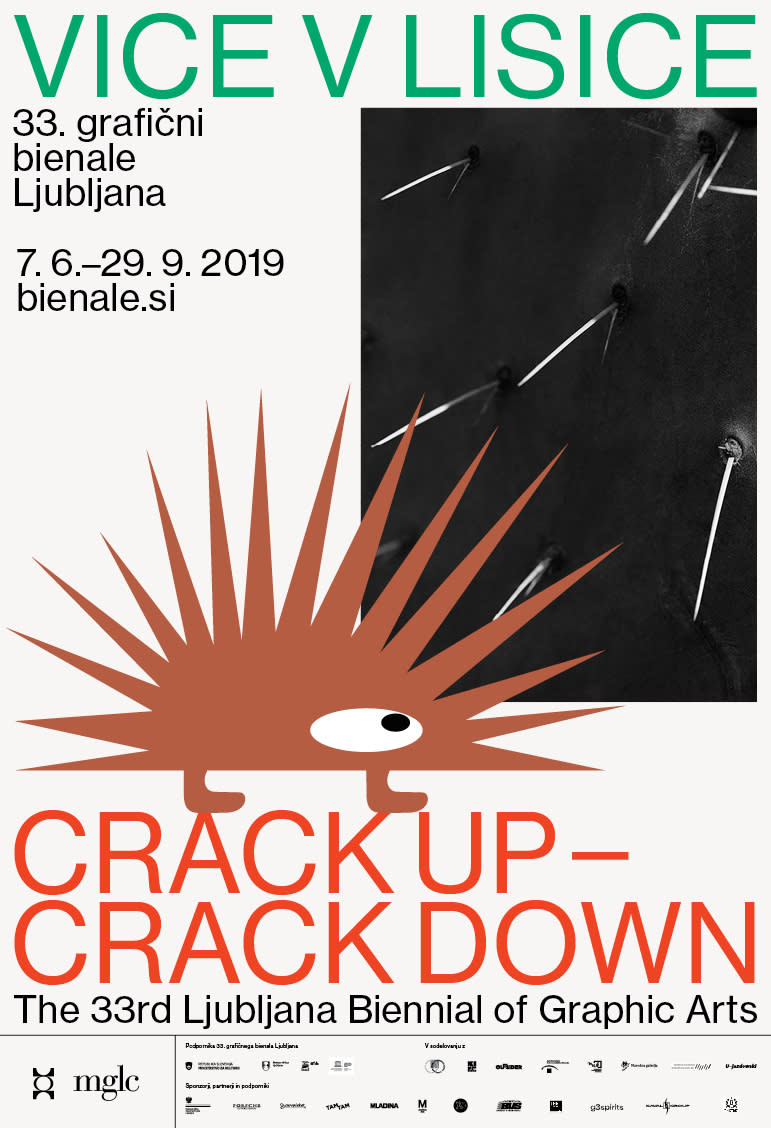
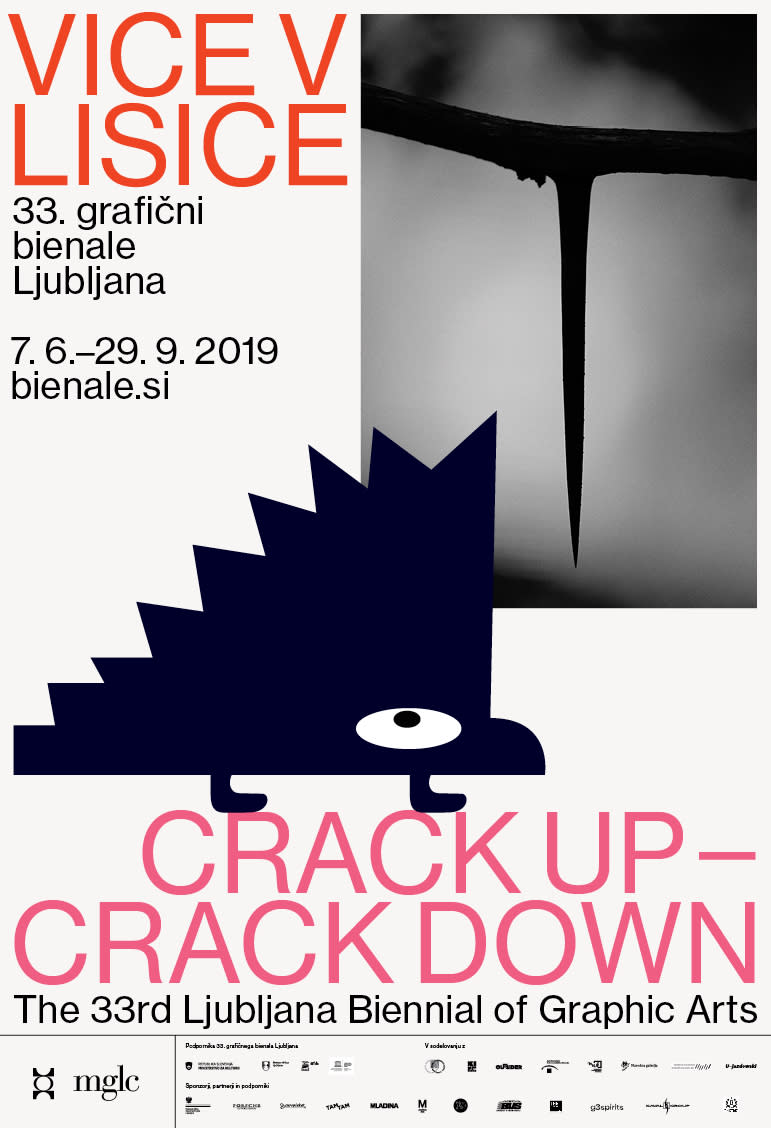
Different versions of the biennial poster
The identity sourced the main theme of the biennial: satire. Spikes, stingers and spikes play an important role in how we (used to) talk about satire. One Slovenian word used in jokes – if that joke is aimed at someone – is zbadljivka. It comes from the verb zbosti, which means to prick someone/something. Most of the names of early 20th century satirical newspapers (predecessors to meme accounts) in the region were all named after animals or plants that prick, pinch, bite, or sting with a thorn or stinger: Osa (wasp), Bodeča neža (silver thistle), Jež (hedgehog), Rogač (stag beetle)...
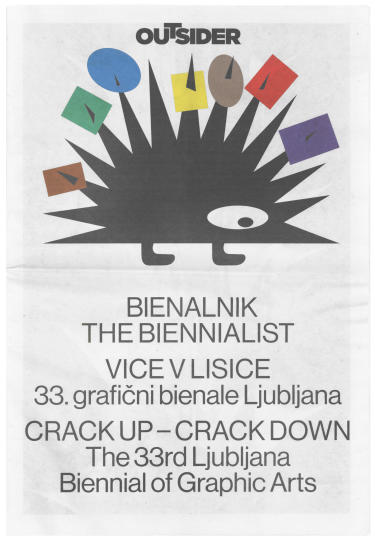
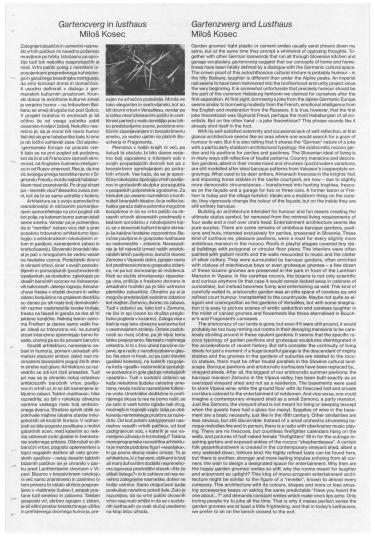
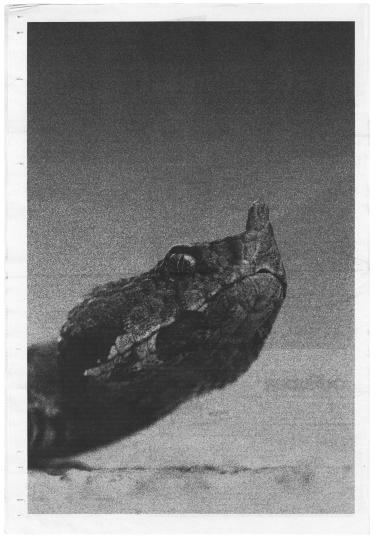
Spreads from the Biennialist, the newspaper covering the event. The portraits below were used for people mentioned in the newspaper.
The linguistic bond between spikes and humor was the reason for using a combination of whimsically drawn hedgehogs (light and humorous aspects of satire), paired with found and commissioned photography featuring spikes and thorns (more serious and often political undertones).
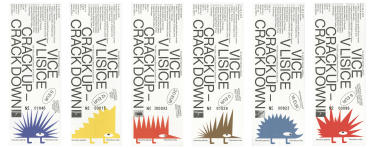
Biennial entry tickets
Dan Adlešič worked on the signage and transformed the hedgehogs into 12 physical objects, guiding people around various locations in the city. Commissioned photography for the posters was done by Klemen Ilovar. Some of it was also used in Bienalnik, a newspaper that accompanied the biennial, edited by the team from Outsider magazine.
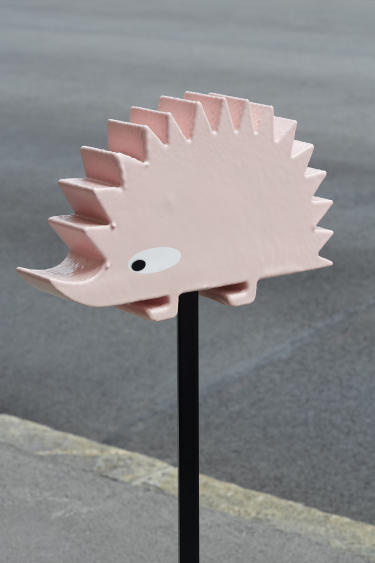
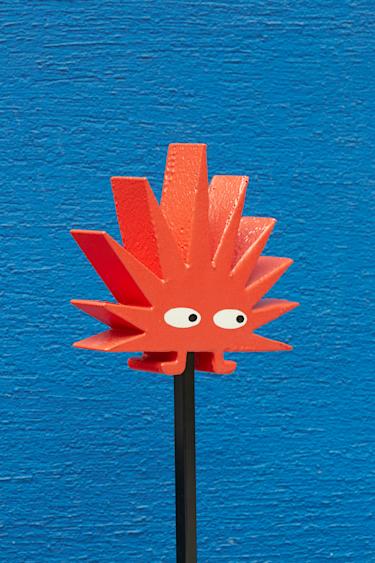
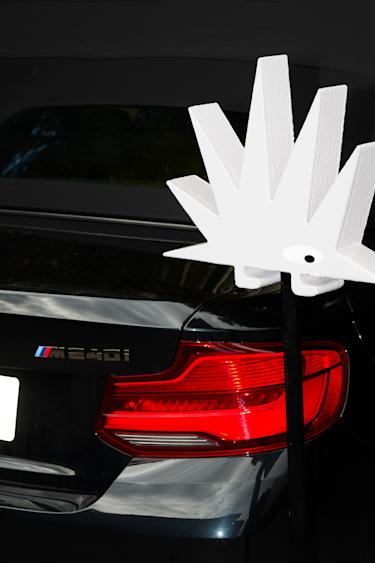
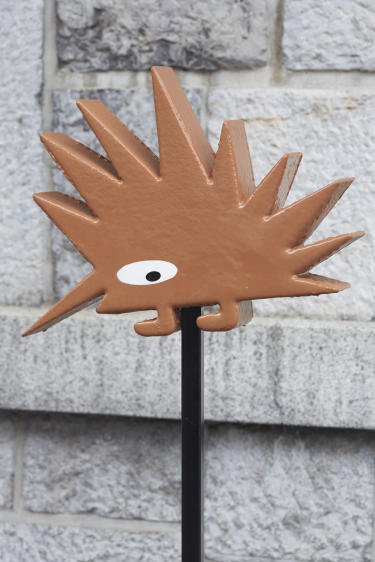
The biennial was held in 12 locations around the city. Signage was made to help people find them.
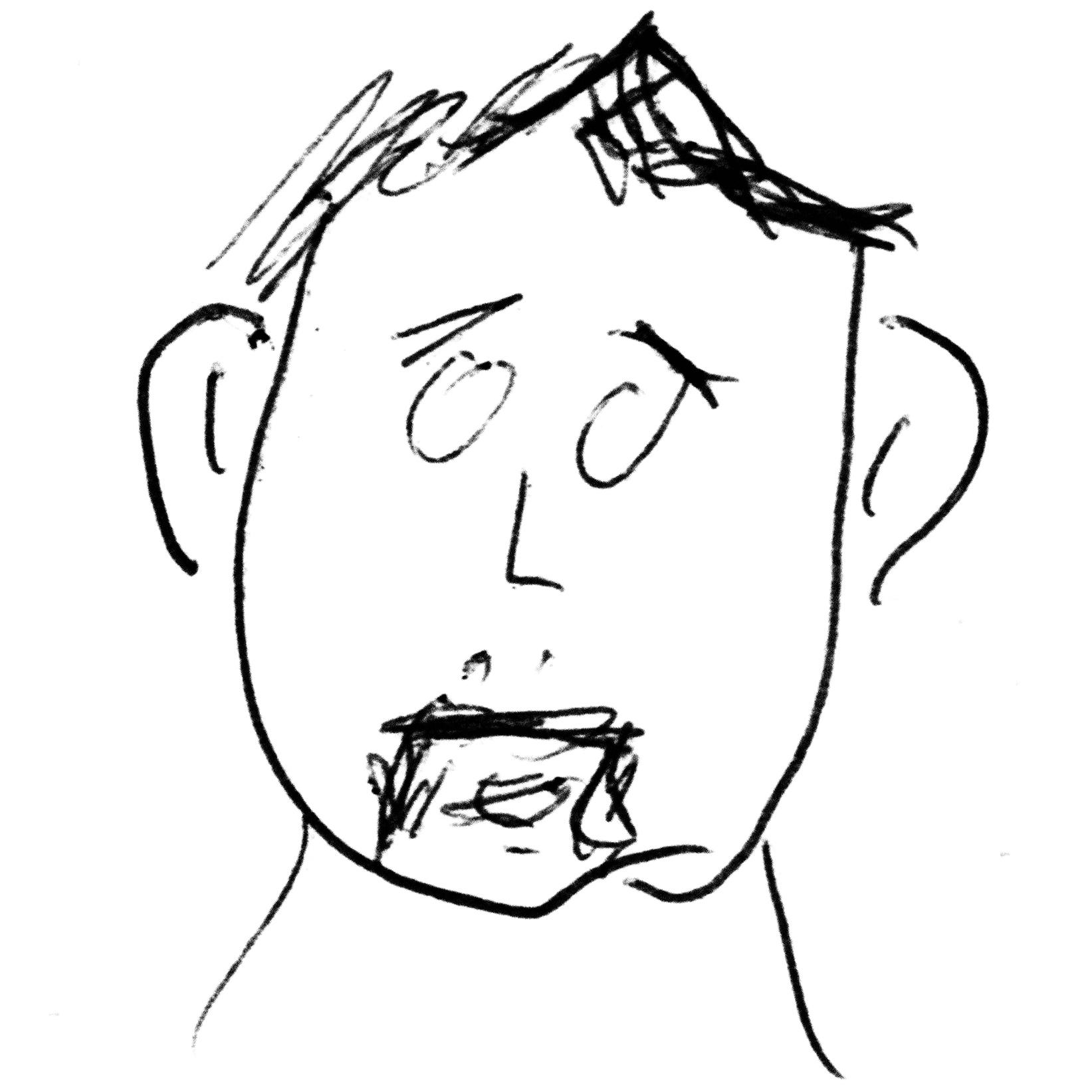
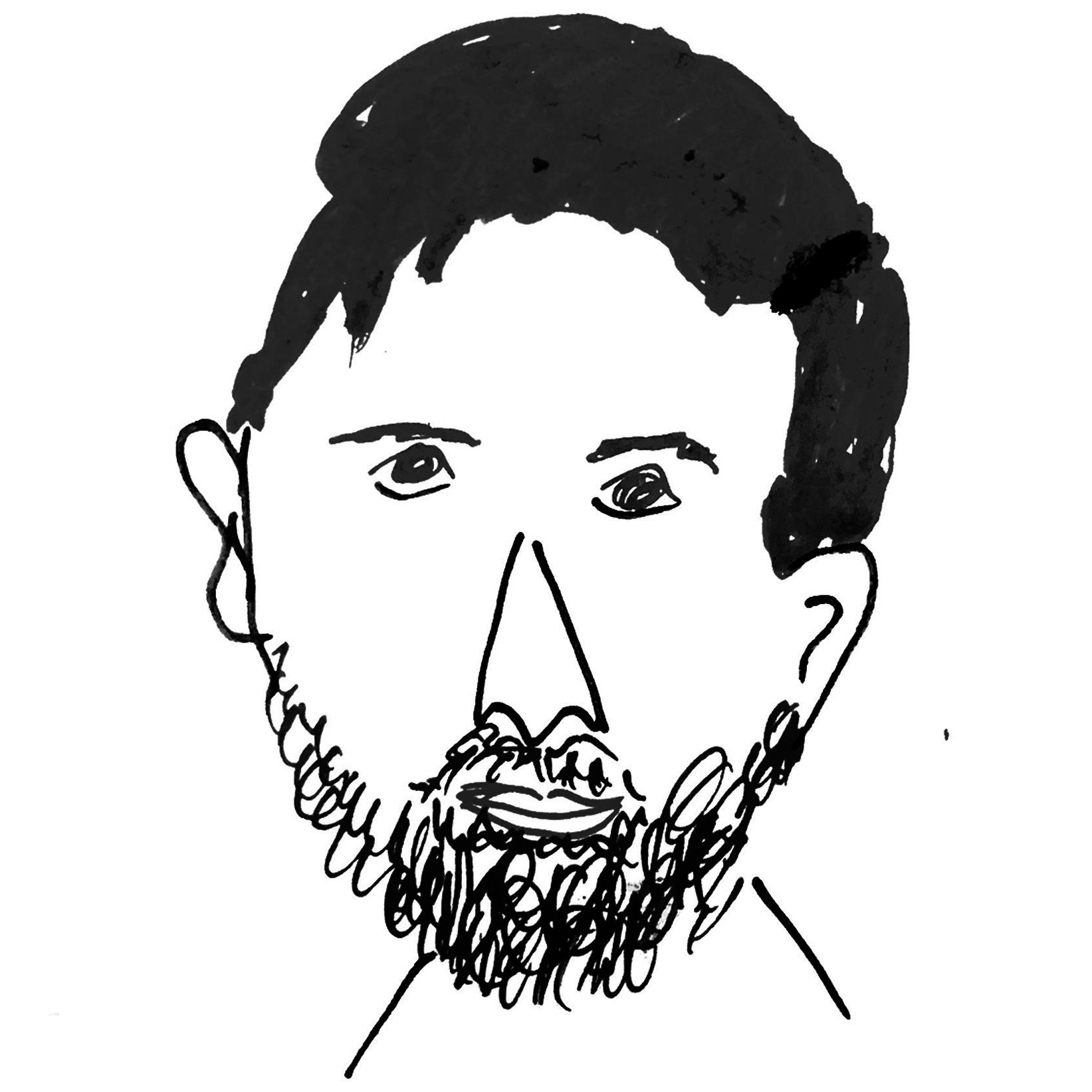
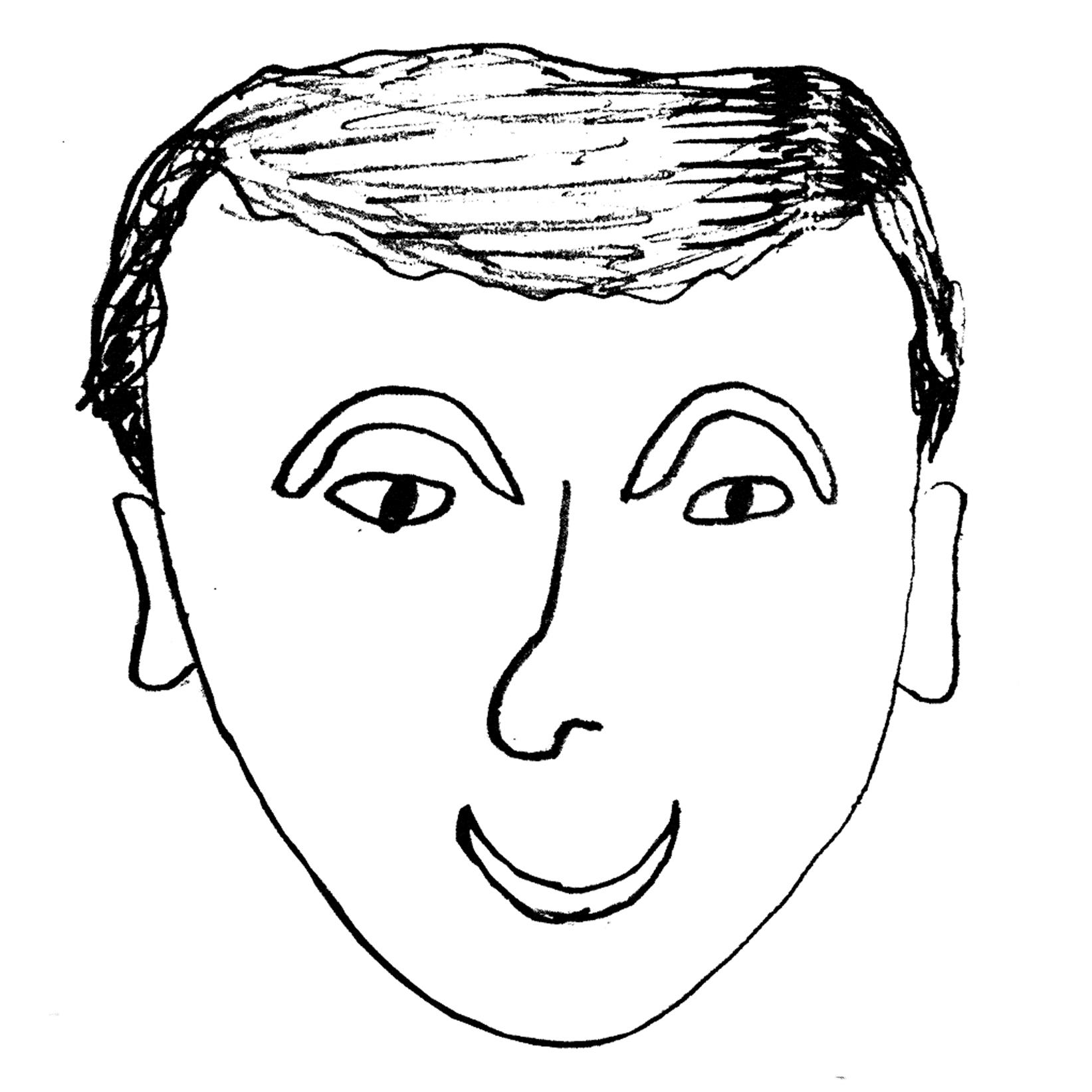
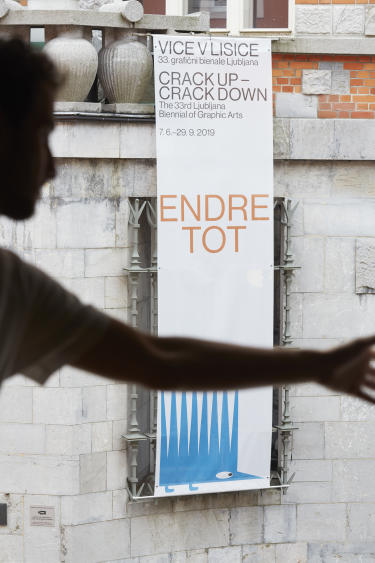
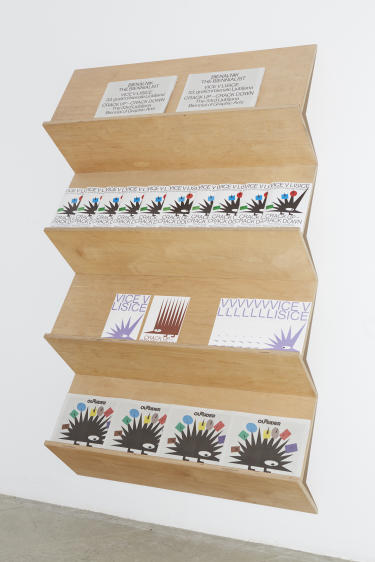
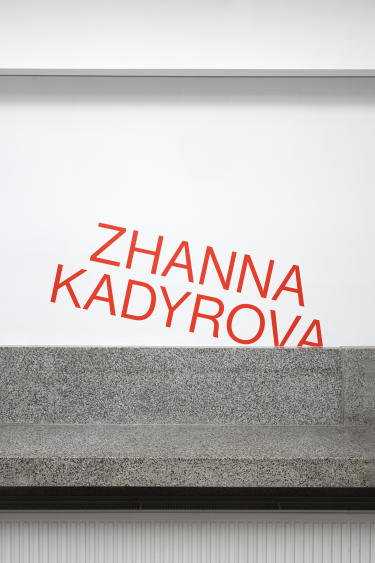
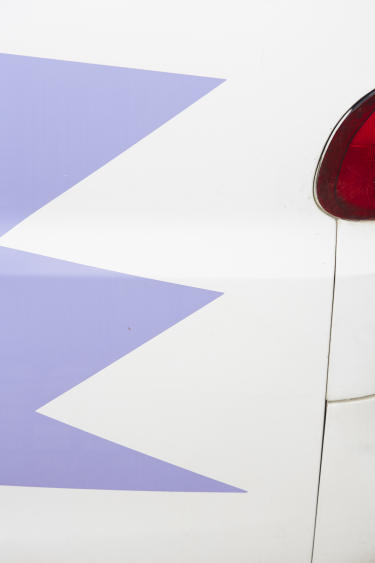
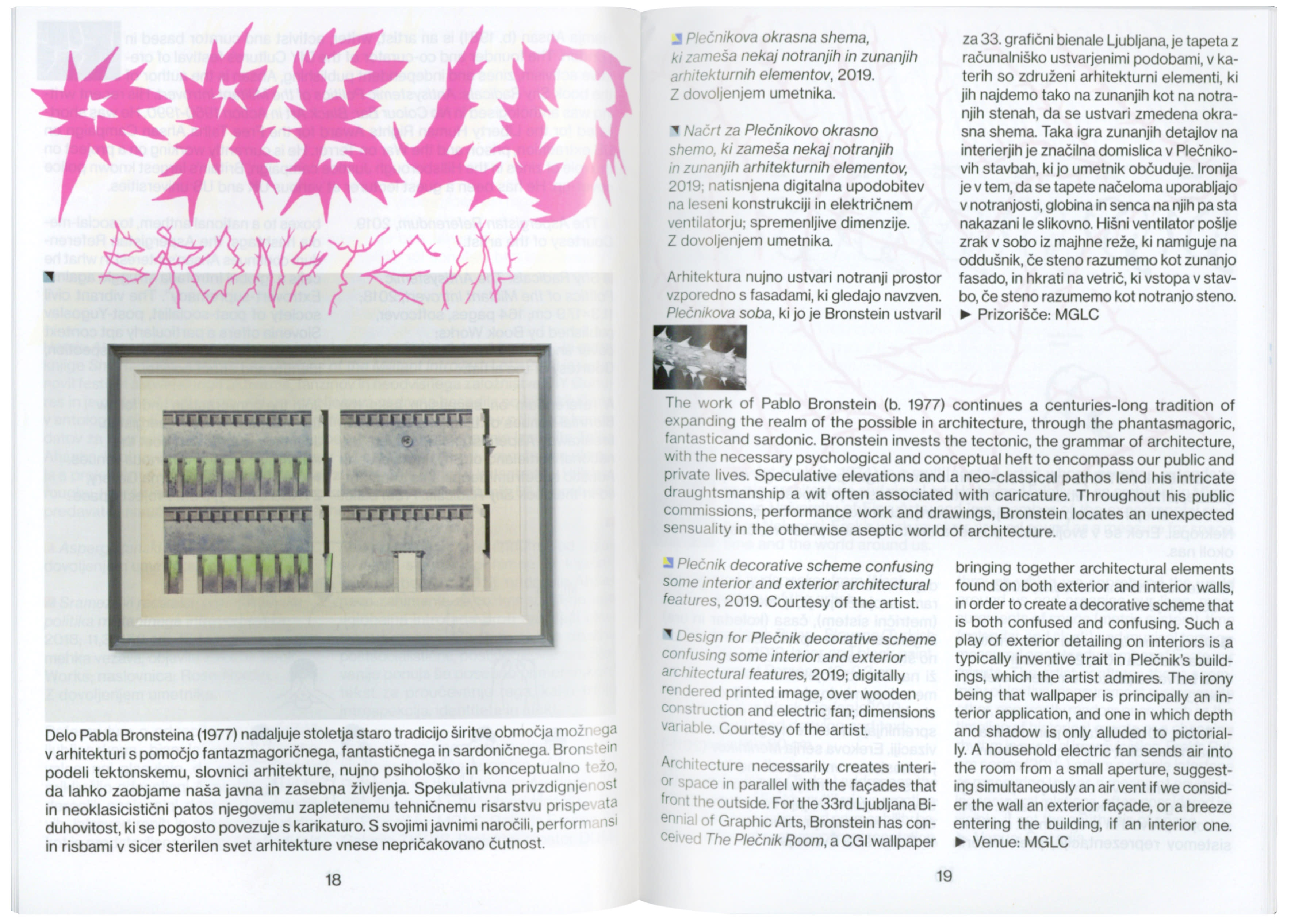
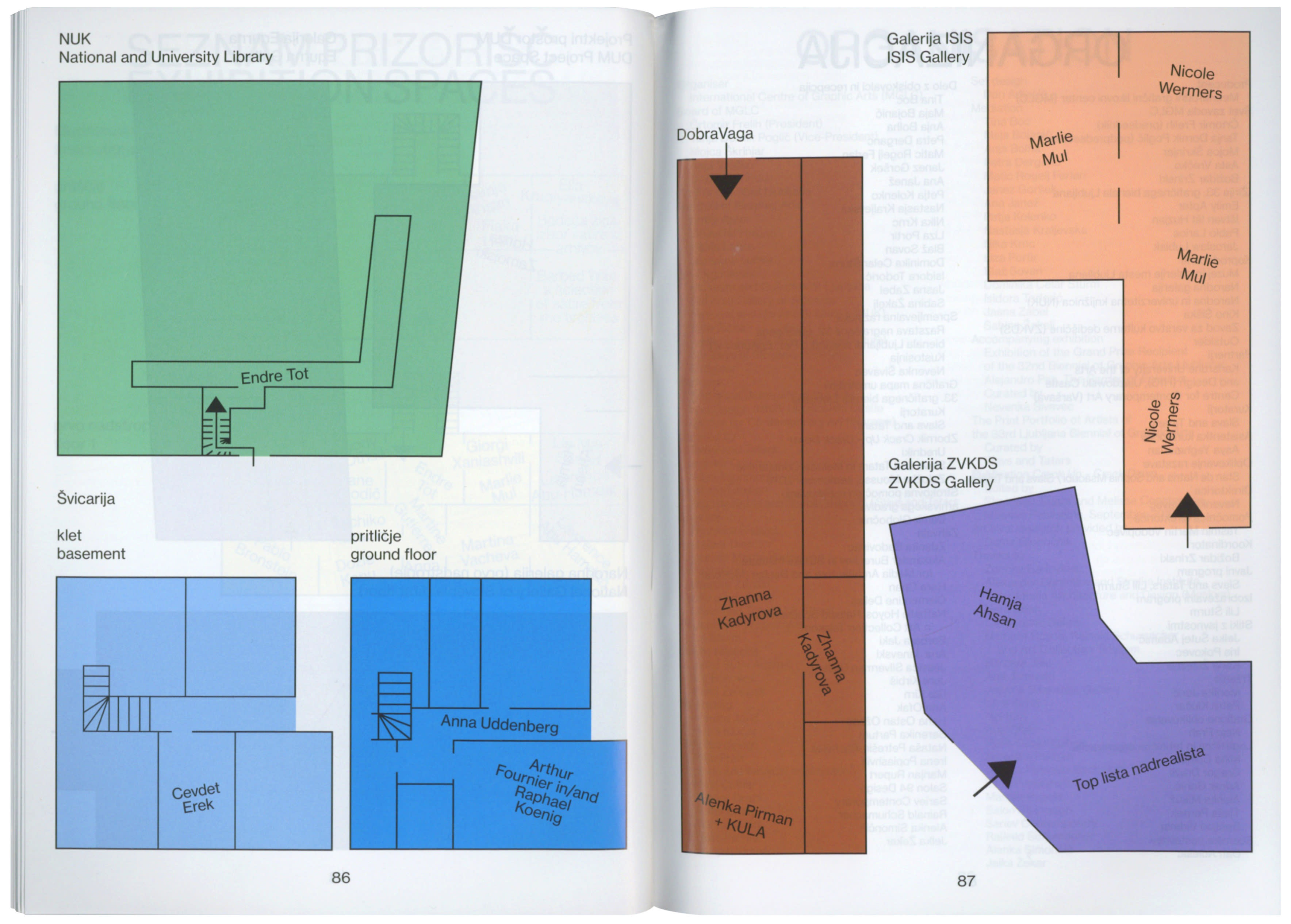
Spreads from the biennial guide with a list of all artists, venues, and descriptions of artworks.
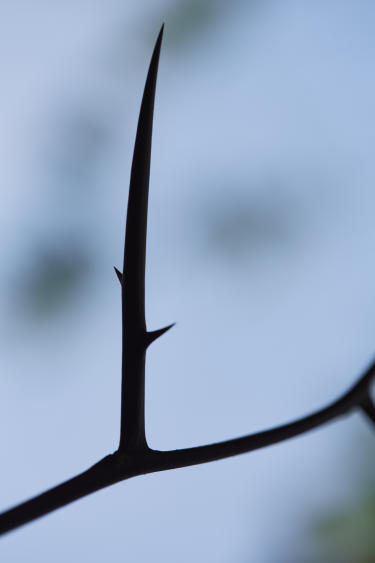
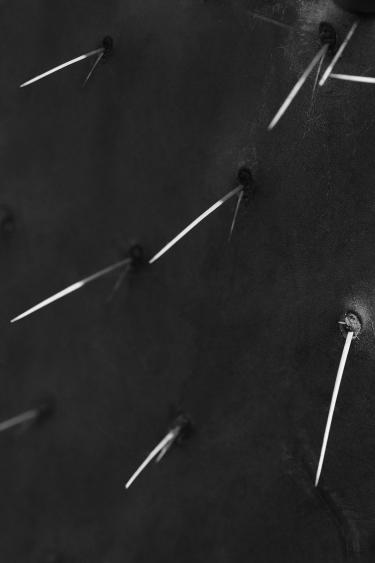
Commissioned photography by Klemen Ilovar was part of the Identity
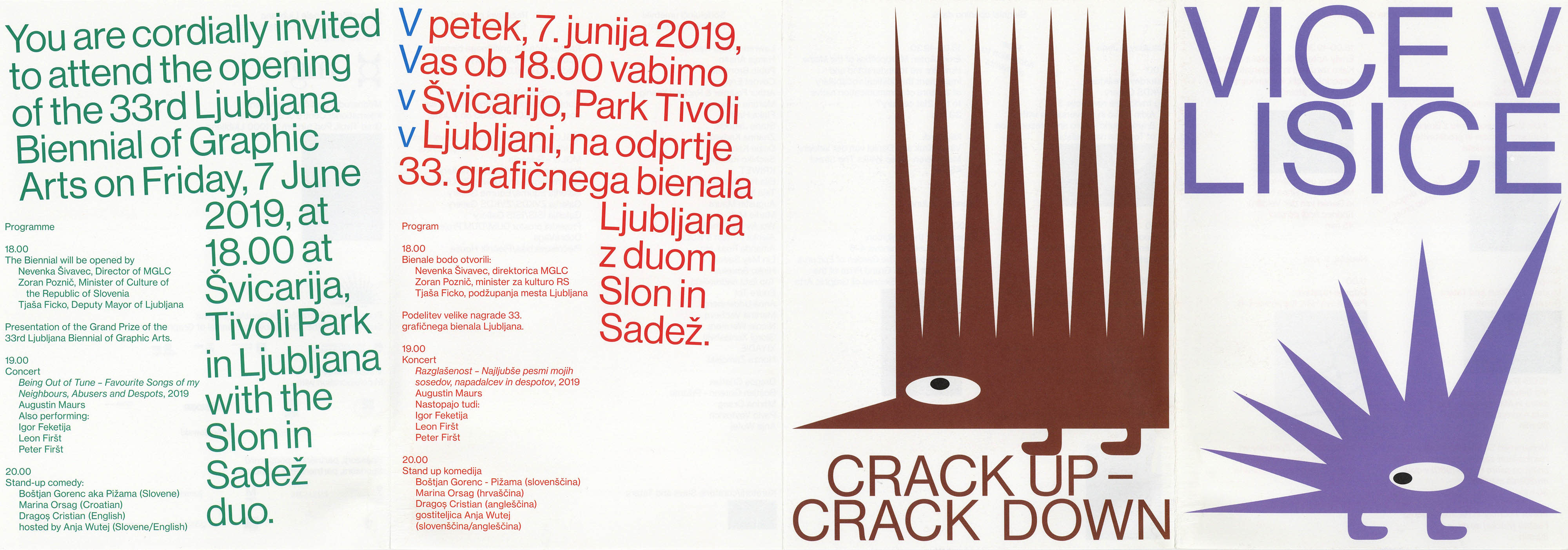
Invitation, 1/2
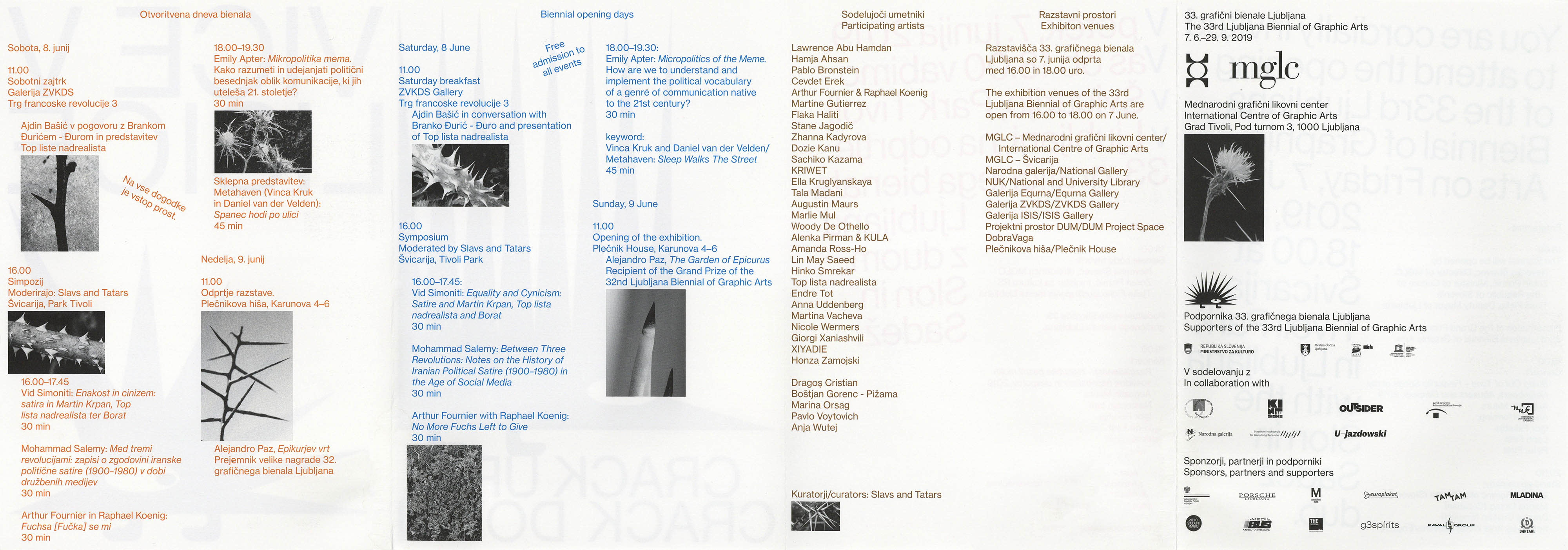
Invitation, 2/2
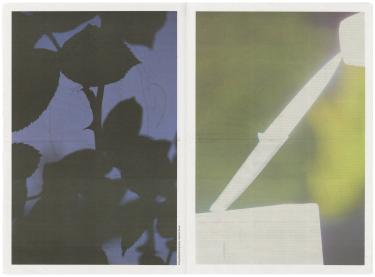
Photography by Klemen Ilovar was used in the newspaper
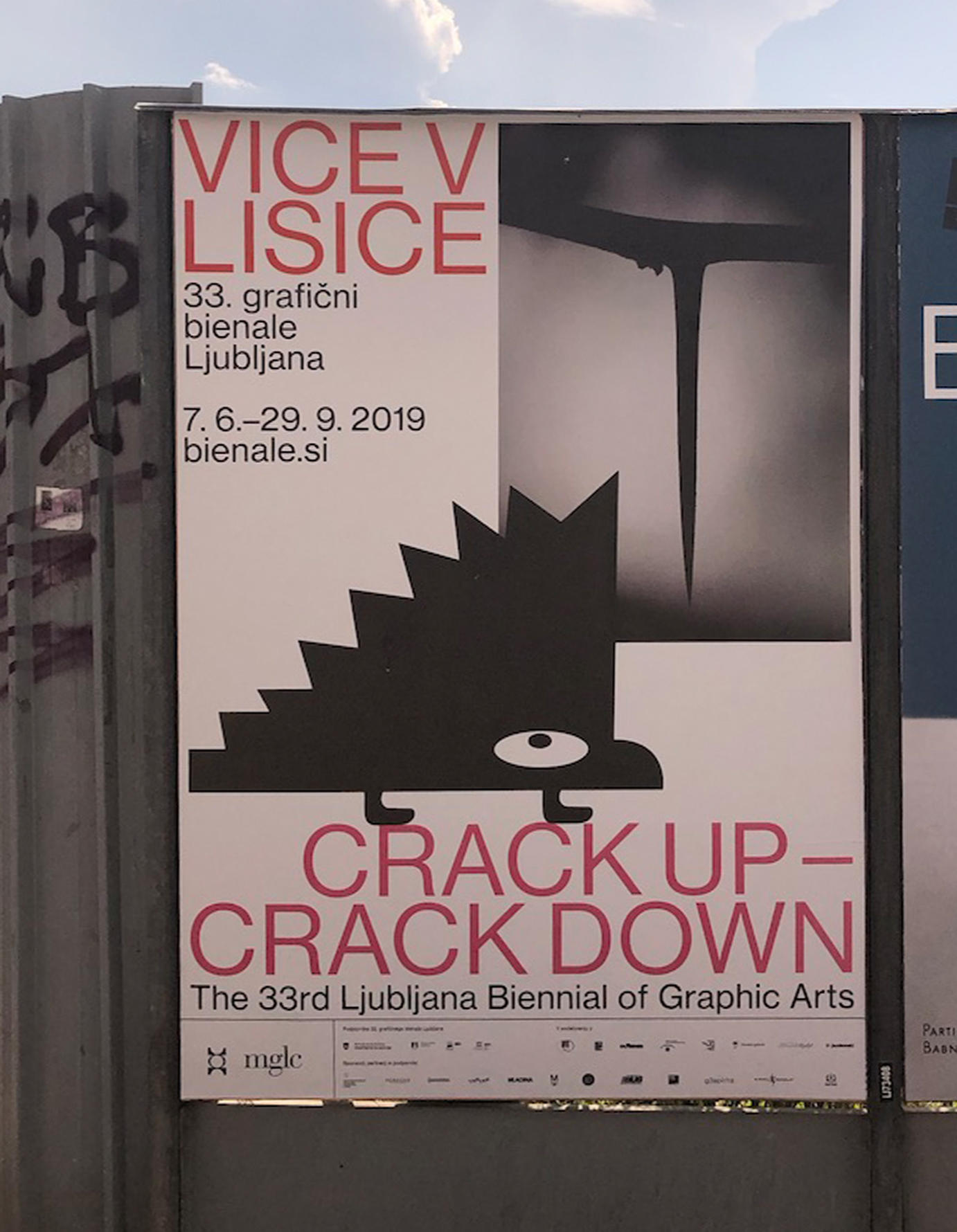
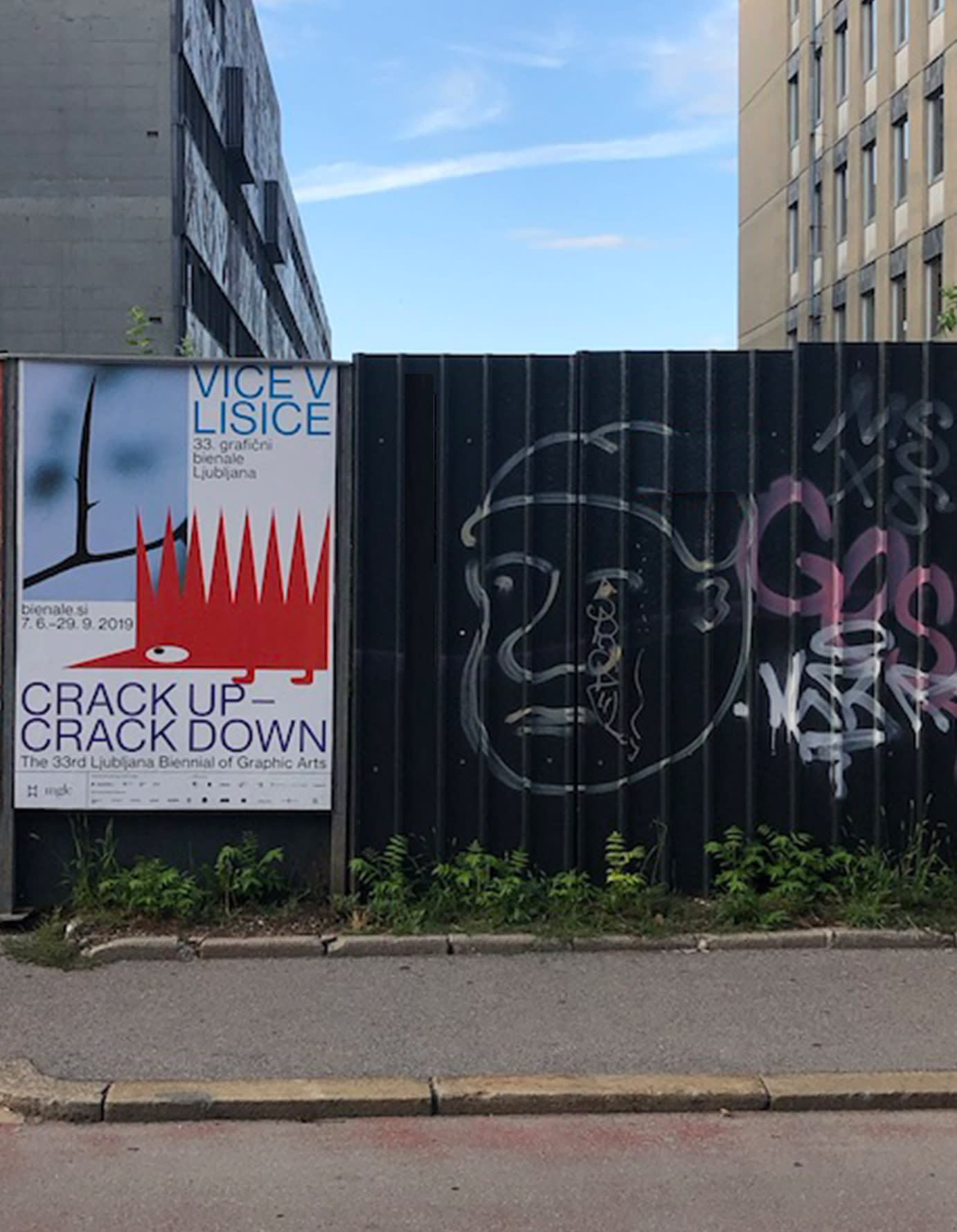
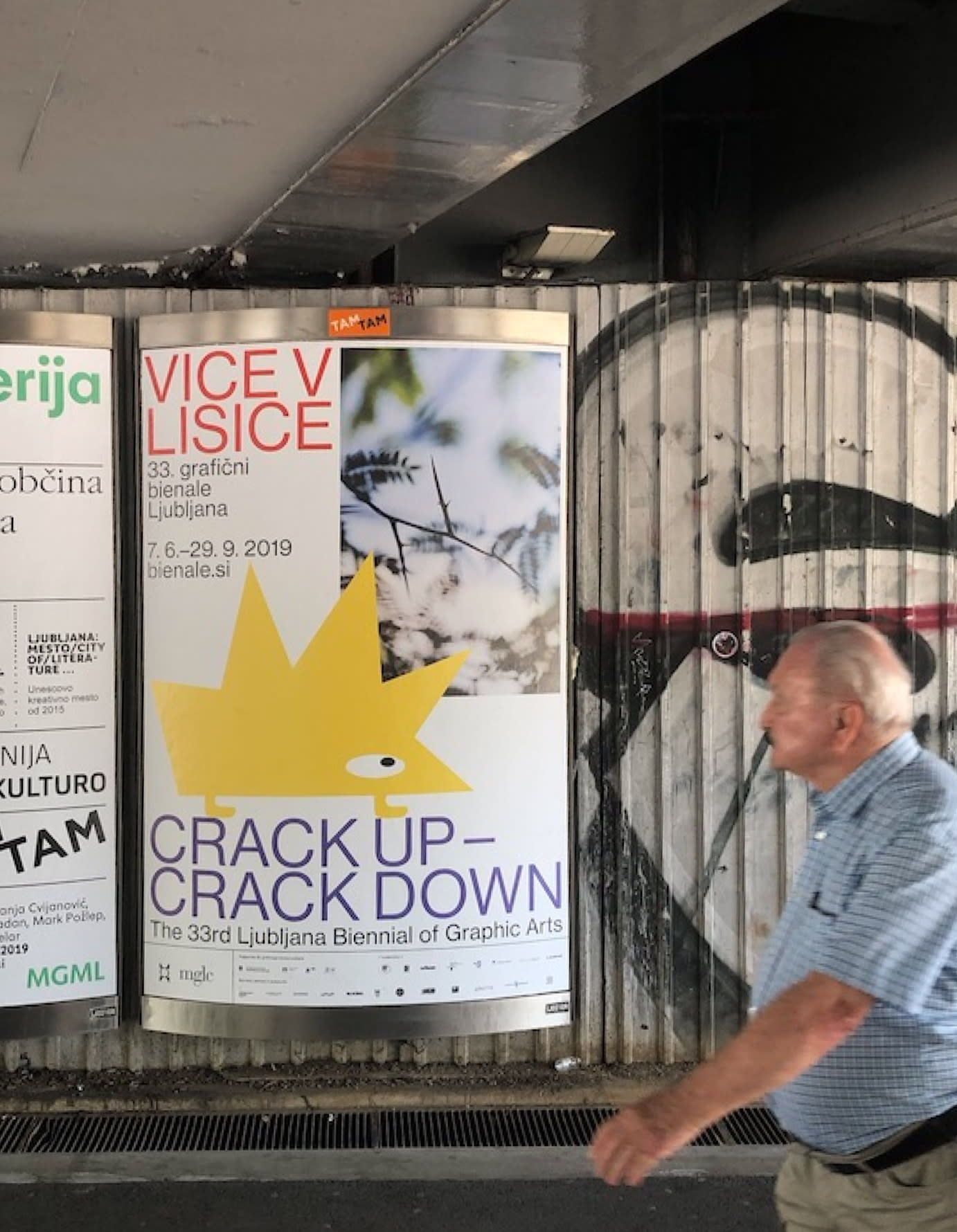
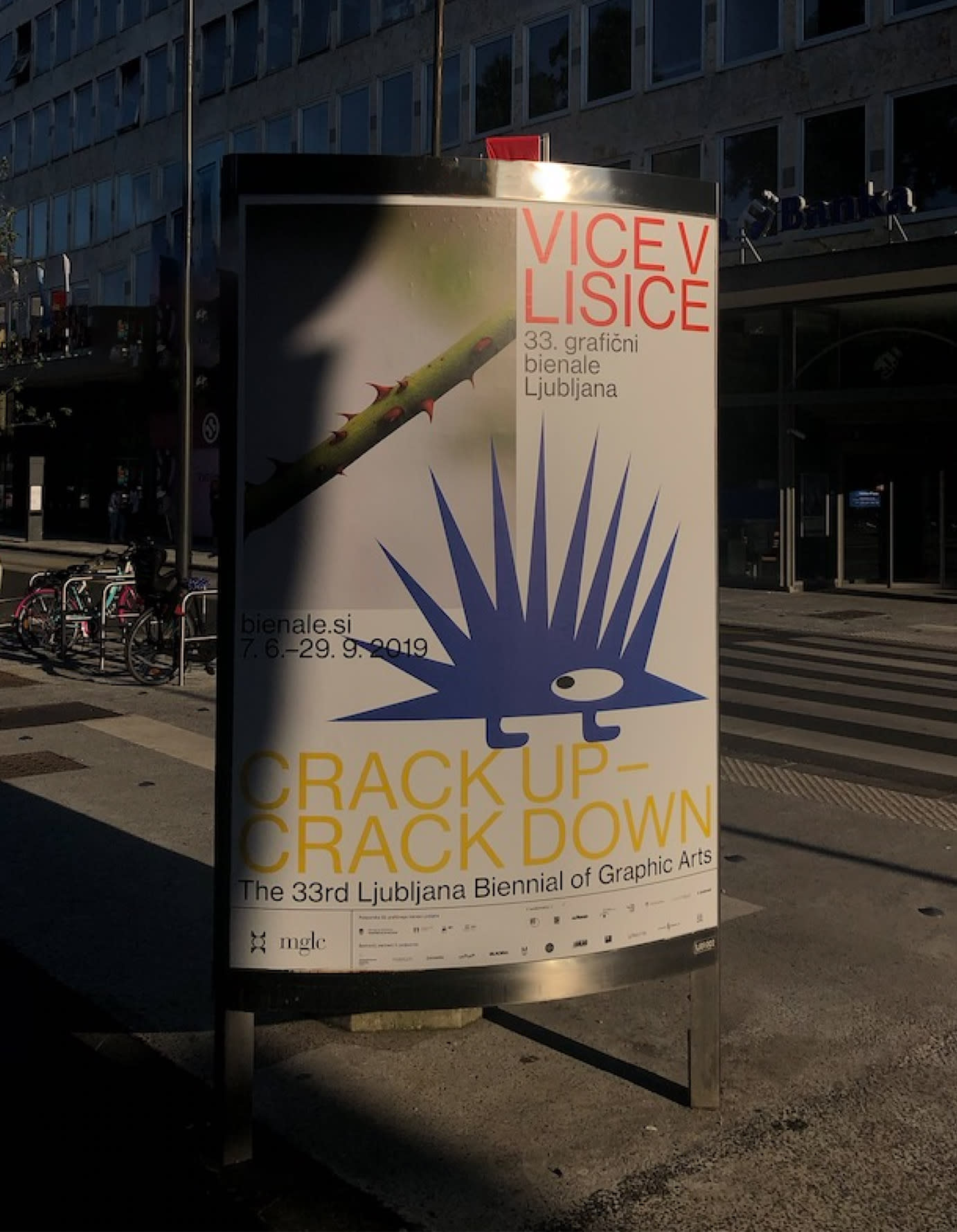
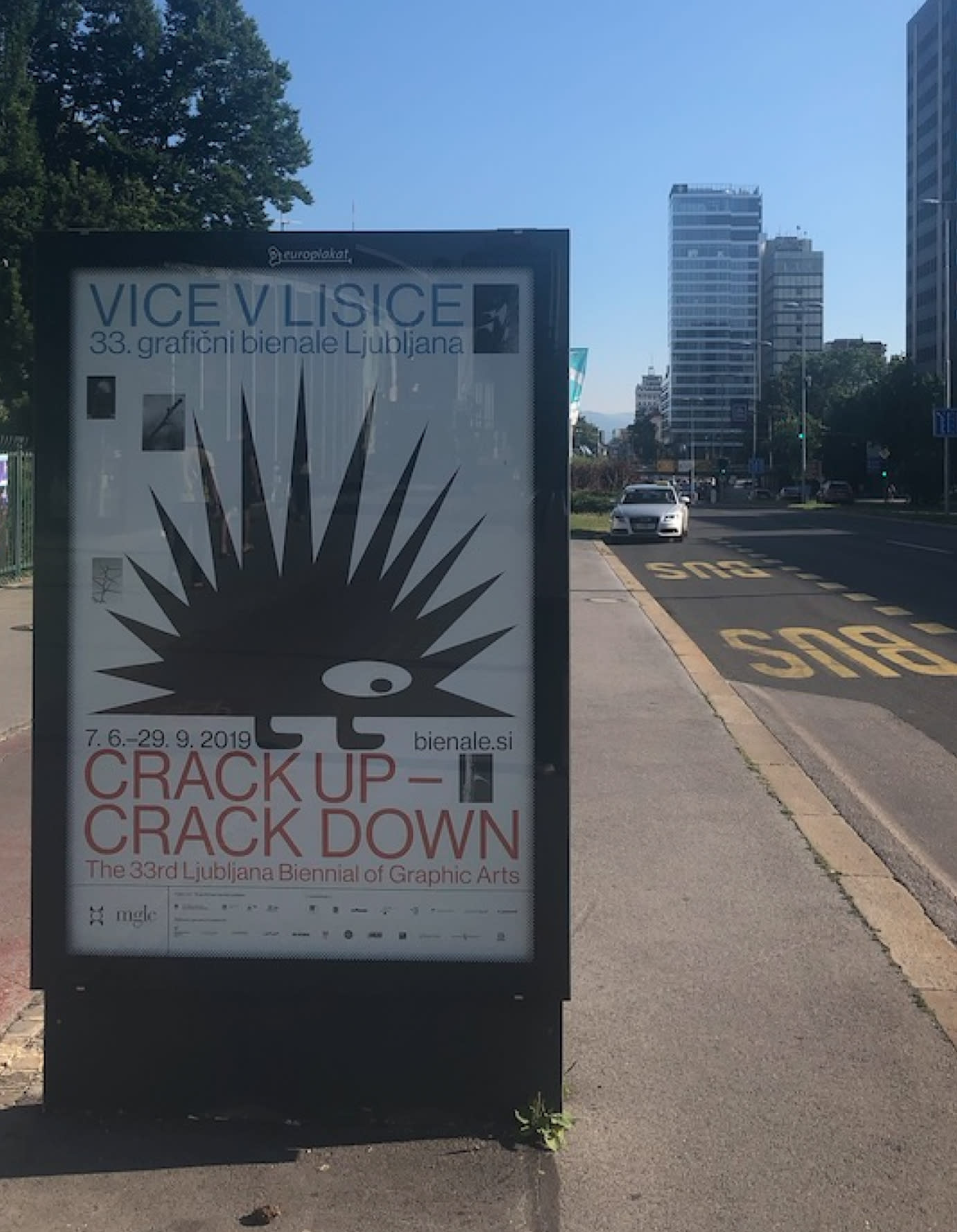
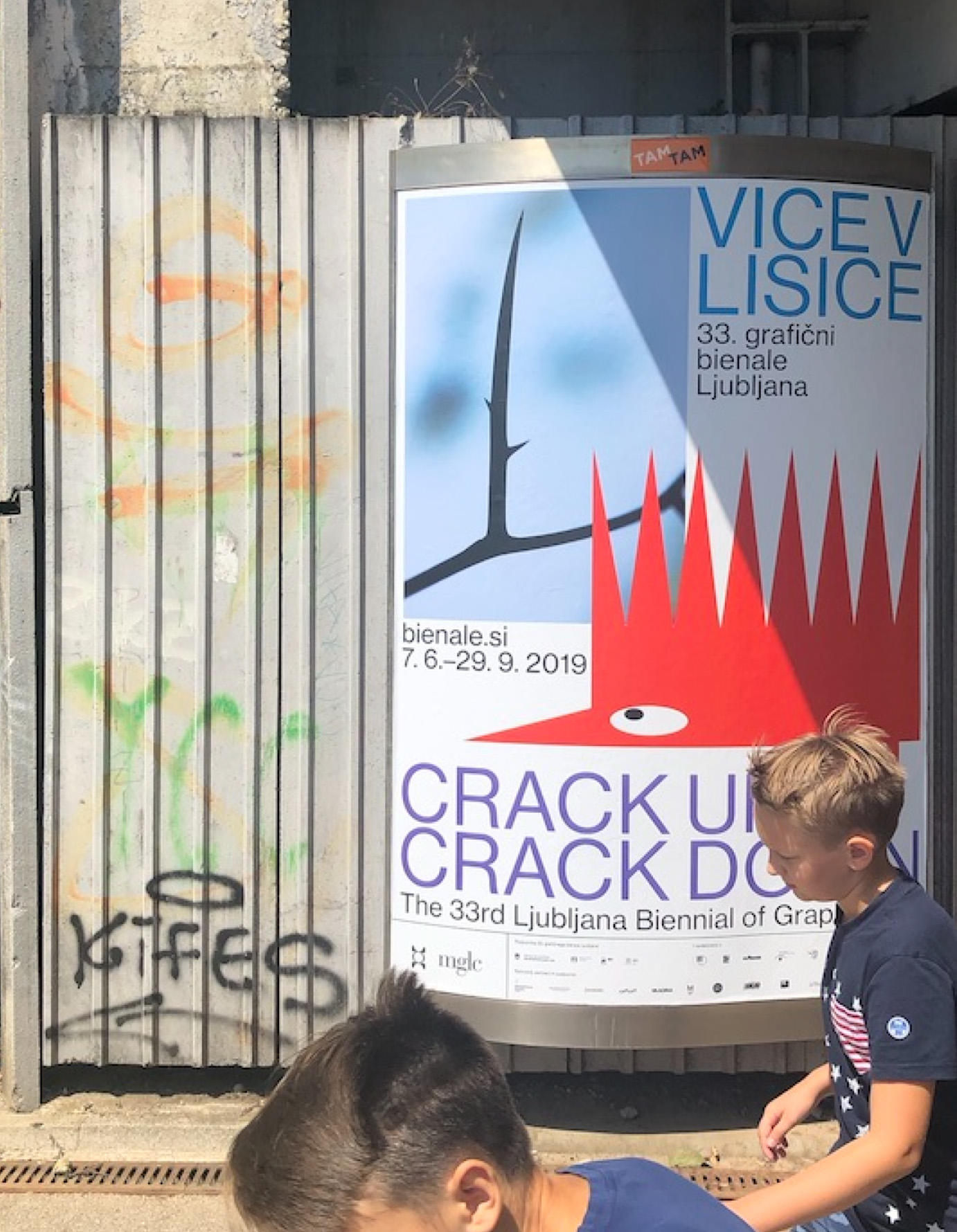
Different biennial posters around Ljubljana
